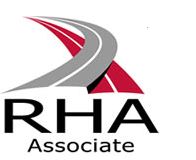
Commercial Transport Law Specialist



01302 775 522
Calls answered 24/7
Nationwide Coverage

NA Commercial Solicitors
Consult Us By Email

Principal Solicitor : Simon Newman
NA Commercial Solicitors
Regulated by the Solicitors Regulation Authority Reg No 441100
Principal : Simon Newman
Free Tel Consultation

Call
Latest Articles
PUBLIC INQUIRY : WHATS THE WORST THAT CAN HAPPEN ?
About 1.5 % of Operators are called to a public inquiry each year to answer allegations about their conduct and face possible disciplinary sanctions.
When they’ve received a letter calling them to a public inquiry, a common question from operators is ‘what’s the worst that can happen?’.
First of all lets be clear on what does not happen.
At a disciplinary public inquiry the traffic commissioner does not have the power to impose a fine, a sentence of imprisonment or give anyone a criminal record. Indeed, the function of a traffic commissioner is not to impose punishments at all. The remit of a traffic commissioner is to take measures to uphold the licensing objectives. The main licensing objectives are road safety and fair competition. It is not to punish operators for breaching the law. That is the function of the magistrates courts.
So what is the worst that can happen at a public inquiry ?
In many respects the powers of the traffic commissioner are far more hard hitting than those of the magistrates court. In brief, the powers of a traffic commissioner sitting at a public inquiry are to terminate an operators licence (revocation); reduce the number of vehicles authorised by the licence (curtailment) or make an order suspending the licence (for a fixed period of time or indefinitely). In addition the operator can be disqualified from holding or applying for a new licence for any period of time or indefinitely.
The traffic commissioner will use these powers to uphold the licensing objectives. This includes setting an example to other operators to show that breaches of the regulations will not be tolerated.
For a haulage or passenger transport company, the loss of the licence is devastating. The traffic commissioner has the power at a public inquiry to literally put the operator out of business with immediate effect and disqualify the operator from ever holding or applying for a licence again.
For other operators, where transport is ancillary to the business, such as scaffolders and many restricted operators licence holders, the business may survive a loss of its operators licence. But this will inevitably bring huge cost and logistical problems that could ultimately render the business unprofitable.
For someone who has invested all their effort and finances to building a business, the loss of an operators licence is a devastating outcome. It does not get much worse than that.
The lesson then is that disciplinary public inquiries should be avoided at all costs. The way to avoid them is to ensure strict compliance with the rules. If you are one of the 1,500 or so operators who face a public inquiry each year, take prompt advice from a good transport solicitor, take immediate steps to remedy your failings and hope that you’ll not be one of the 450 operators whose licences are terminated or suspended each year.
An article Produced in June 2011

